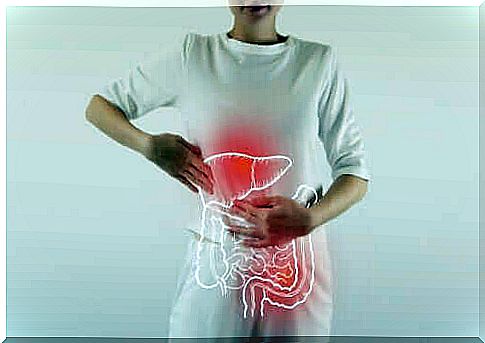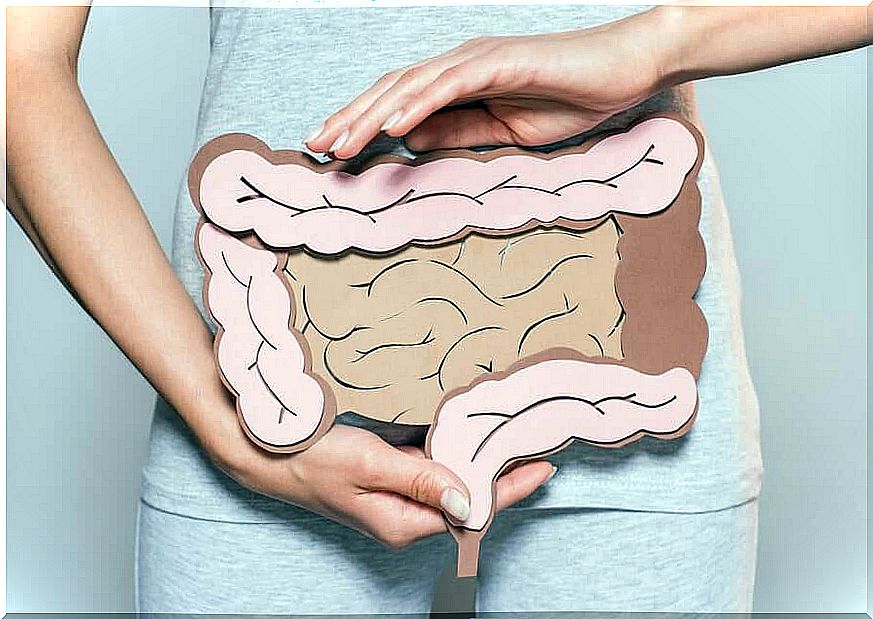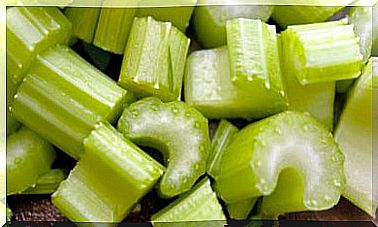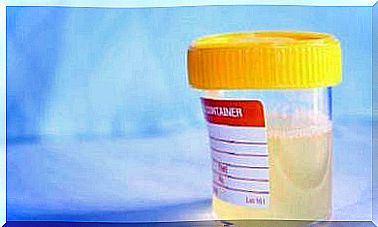Interesting Facts About Digestive Enzymes
Digestive enzymes are responsible for breaking down food into its basic building blocks so that they can be absorbed and processed by the body. Without them, the digestion of the food eaten would not be possible.

Digestive enzymes are biochemical catalysts that are responsible for breaking down the food eaten into simple building blocks so that they can be absorbed and processed by the organism. They accelerate chemical reactions and perform specific tasks. Without them, digestion would not be possible.
These enzymes are found in specific parts of the digestive tract: saliva, stomach, pancreatic juice, and intestinal secretions. They perform specific functions and require special conditions in order to become active. Find out more about this topic today.
What are digestive enzymes?
Enzymes are proteins that are produced by the organism. As a biocatalyst, they control and accelerate biochemical reactions, whereby they sometimes work very specifically and can only bind a certain substrate in order to enable its chemical conversion.
What does this mean? There are different types of enzymes and when one type is lacking, its functions cannot be performed by another type. This can lead to problems. An example of this is a lactase deficiency. This enzyme breaks down milk sugar (lactose) into its components. If there is a lack of it, the lactose can be digested poorly or not at all.

Types of digestive enzymes
As mentioned earlier, there are different types of digestive enzymes that are responsible for different nutrients or substrates. These include the following:
- Salivary amylase and pancreatic amylase: They convert starch into glucose.
- Pancreatic lipase and gastric lipase: They convert lipids into fatty acids and glycerol.
- Cholesterolase and Phospholipase: They break down cholesterol and phospholipids.
- Protease: This enzyme breaks down proteins.
What are the functions of digestive enzymes?
As mentioned earlier, the enzymes break down the nutrients found in food so that they can be absorbed by the body. This process is complex, so we’ll explain it in more detail below.
1. Decomposition of carbohydrates
The digestion of these nutrients begins in the mouth, where salivary amylase breaks the carbohydrates into their constituent parts. However, this function is limited in part because it depends on how long the food is chewed.
A study published in the journal Molecular Sciences suggests that if you chew white bread long enough, you can detect a slightly sweet taste. It does this through the decomposition of the starch.
The pancreatic amylase then continues the decomposition process. The juice produced by the pancreas is released when the stomach passes the contents to the small intestine. This juice contains pancreatic amylases as well as lipases and proteases.
The simplest units of carbohydrates, glucose, fructose and galactose can then be absorbed by the body.

2. Decomposition of proteins
The digestion of proteins begins in the stomach with the digestive enzyme pepsin, which is produced in the stomach. Most of protein digestion occurs in the first and second sections of the small intestine, where pancreatic proteases act.
These proteases enter the intestines in their inactive form, because if they were activated beforehand, the pancreas could digest them itself and cause serious complications.
3. Decomposition of fats
The digestion of lipids begins in the stomach with the gastric lipases. It accounts for around 10 percent of total digestion. After that, the pancreatic lipases continue this process when the fats enter the intestine. This is where 90 percent of the decomposition takes place.
In order for the enzymes that break down fats and cholesterol to work properly, they need bile. The liver produces the bile that is stored in the gallbladder.
As soon as the fats get into the intestines, nerve signals trigger the release of the bile, which then work together with the lipases, phospholipases and cholesterolases.
Factors Affecting Enzyme Production
Various factors can affect the production or the functions of the enzymes. The most common include:
- Deficit diet
- Gastrointestinal problems and malabsorption
- Pancreatic insufficiency
- Cystic fibrosis
- Aging

What you should know about digestive enzymes
The digestive enzymes play a fundamental role in the breakdown of the food eaten. When the body is functioning properly, it can perform its functions optimally, breaking down carbohydrates, fats and proteins.
However, if there are metabolic diseases or the production of enzymes is impaired, the food cannot be properly broken down and as a result malabsorption or malnutrition occurs.









